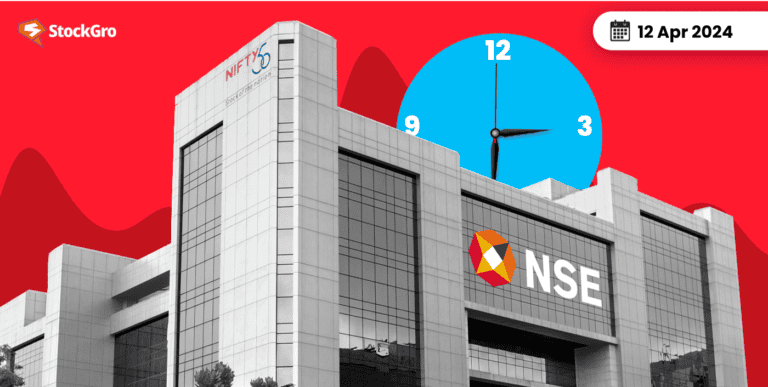Table of contents
Introduction
As an investor, you can either be a risk-averse or a risk-taking individual. You can invest your money to meet your different financial goals in many ways. If you are a conservative investor and are looking for wealth preservation while ensuring that you have a steady source of income in some form, you have come to the right place!
One of the best investment options that meets your criteria is income funds. Check out this article to learn more about income funds and how they can help you achieve your investment objectives.
What is an income fund?
An income fund is a form of mutual fund or exchange-traded fund (ETF) that primarily seeks to generate a constant source of income for investors. The primary goal of income mutual funds is to offer you consistent profits through recurring distributions, generally made of interest or dividends.
These income funds are primarily a form of debt funds, and rightly, as per their categorisation, these funds invest your corpus in debt instruments such as debentures, fixed deposits, bonds and government securities, usually for a longer period. However, a few of these income funds also invest in equity shares that provide significant dividends.
Types of Income Funds
Income funds can be further categorised into various types based on the securities they invest in, and some of these types are listed below.
- Money market funds
These funds are invested in financial securities such as short-term treasury bills, certificates of deposits, and commercial paper. While these funds offer an exceptionally high degree of safety, they offer relatively low yields compared to other funds.
- Equity income funds
These funds are invested in the company’s stocks that provide significant dividend amounts regularly and act as a steady source of regular income. Guess what? Historically, dividends are a large percentage of the total returns you obtain on stocks in the long run!
- Bond funds
These funds concentrate your corpus on investing in corporate and government bonds. Bond funds are one of the safest investment options because they comprise government bonds with no default risk. However, these government bonds offer lower yields when compared to corporate bonds.
Features of Income Mutual Funds
Income funds offer a range of features to you, and you should check these out if you are deciding if it is a great idea to pursue these funds as an investment option.
- Regular income stream
One of the most salient features of income mutual funds is that they aim to generate a steady income stream for you. These funds provide monthly cash issuances through bond interest payments or equity dividends, making them especially appealing to retirees looking for dependable income.
- Portfolio diversification
When you invest in income funds, you are actually investing in an array of financial instruments which generate regular income in the form of interest or dividends. This diversification mitigates the effect of the funds that might underperform and increase your portfolio resilience.
- Risk profile
Income funds prioritise wealth preservation over wealth generation and, therefore, have a comparatively lower risk profile. However, two types of risks are associated with these funds.
The first is credit risk, a default risk, where the issuer cannot repay interest or the principal amount. The second risk is interest rate risk, which is associated with the fluctuation of interest rates and its impact on the value of the securities.
- Liquidity
Most debt instruments, such as fixed deposits, have a lock-in period, and you would face penalties for premature withdrawals. However, income funds do not have a lock-in period and, therefore, are one of the most liquid funds you can invest in!
- Professional management
Income mutual funds are managed by professional portfolio managers who actively monitor the composition of the income funds. These professionals analyse the market to identify instruments with high revenue-generating potential while efficiently controlling risk.
Things to consider before financing in income funds
Before investing in income funds, consider the parameters listed below.
- Investment objectives
You must first define your investment objectives, including determining the investment time period and the expected returns.
You should also decide on the amount of capital you are willing to invest in these funds because that will help you narrow down the income fund options that are the most viable for you.
- Risk tolerance
Income funds come with credit and interest risks, and the degree of these risks varies based on the funds you decide to invest in.
Therefore, you should carefully consider your risk tolerance and only pick the investment option that suits your risk appetite.
- Expense Ratios and Fees
The expense ratio is the percentage of the scheme’s total assets levied as a fee for the services offered to you. These could be in the form of management fees, administrative costs, and sales charges.
If these expense ratios are lower, your net earnings would be greater and vice-versa; therefore, the expense ratio greatly influences the long-term results.
- Fund Manager’s Track Record
Looking into the fund manager’s track record and expertise in managing the income fund is a great way to determine whether it would be a wise option to invest or not. When inspecting the track record, remember to examine overall performance signs, such as volatility, annualised returns, and downside risks.
- Asset Distribution and Portfolio Composition
Examine the income fund’s asset allocation and portfolio composition to verify if the assortment of funds meets your financial goals and risk tolerance. Having knowledge of these aspects is always important because they help you make safe and sound data-driven decisions.
- Taxation Policies
If you invest in income funds, you will be subjected to capital gains tax. You must pay short-term capital gains tax if your holding period is three or fewer years. These gains are added to your income and are taxed according to your income slab.
Conclusion
Income funds are one of the safest options if your primary objective is generating a secondary income source and if your focus is not capital appreciation. These income funds are also an excellent option for risk-averse investors. With careful consideration of investment goals, risk tolerance, and fund features, you may use these funds to develop a diverse and robust portfolio and confidently handle market uncertainty. If you are looking for more insights into the world of investments, check out StockGro.
FAQs
An income fund is a type of mutual fund that primarily invests in financial securities that provide regular returns in the form of dividends or interest.
Income funds are taxed based on the holding period. For example, if your holding period is less than three years, your gains will be added to your income and taxed based on your tax slab.
Interest and principal default, inflation and security value depreciation due to changing interest rates are some risks connected to income funds. Furthermore, there might be additional risks specific to the type of security you have invested in.
You can invest in income funds if your primary objective is generating income along with portfolio diversification and stability.
While the primary goal of income funds is to deliver consistent income, some may also provide the opportunity for capital appreciation. This will again depend on the composition of the income fund basket that you choose.

